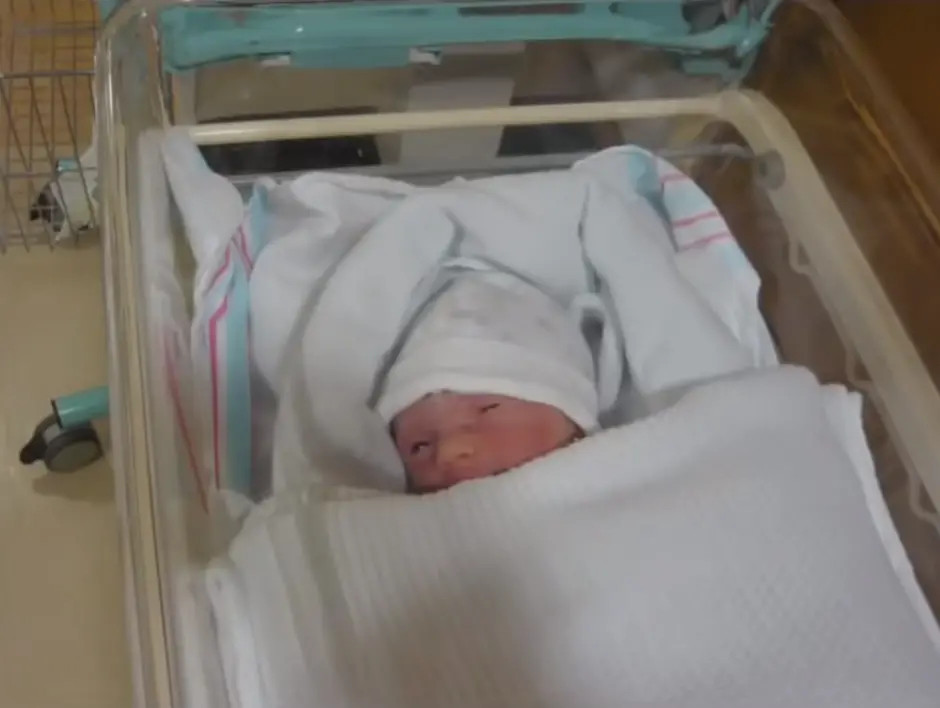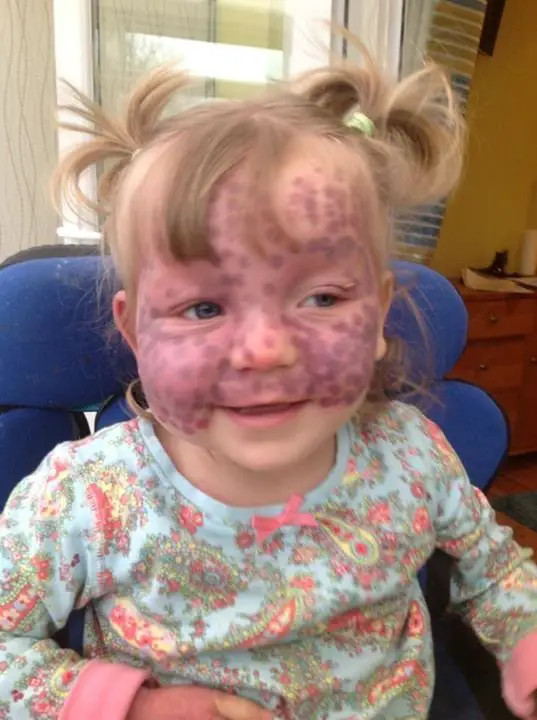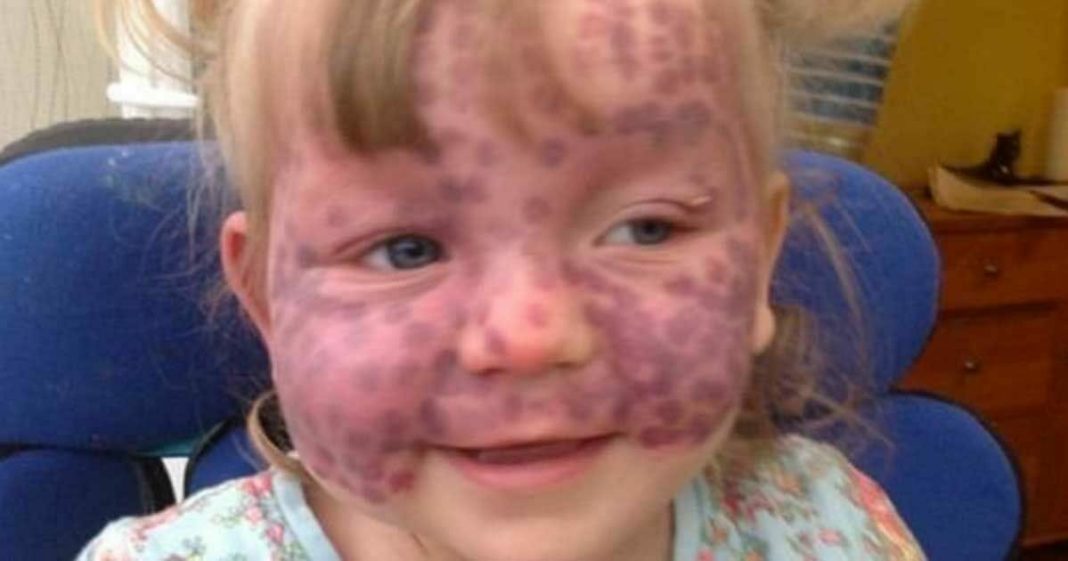The Inspiring Journey of Matilda Rose Callaghan
Every new parent dreams of welcoming a healthy child into the world, filled with vitality and potential for a joyful upbringing. However, for Paul and Rebecca Callaghan, this dream came with an unexpected twist. Their daughter, Matilda Rose Callaghan, faced a series of health challenges even before her birth, leading to a premature delivery that would alter the course of their lives forever. As her parents navigated the complexities of her condition, they quickly learned that their journey was just beginning, marked by a series of medical interventions and emotional trials. This is a story of resilience, love, and an unyielding spirit that transcends adversity.

Upon Matilda’s arrival, the joy of birth was overshadowed by immediate concerns. Medical staff quickly noted troubling signs when they observed her face covered in dark blue and red marks. Initially attributed to the common bruises that can accompany childbirth, these marks were, in fact, indicators of more severe health issues. It wasn’t until after her delivery that the root causes became apparent, compelling her parents and doctors to confront the reality of her health challenges. Matilda had been diagnosed with Trachea Oesophageal Fistula (TOF) and Sturge-Weber syndrome, both of which would shape her early life and continue to present ongoing challenges as she grows.

Understanding Matilda’s Conditions
To comprehend the extent of Matilda’s struggles, it is crucial to understand the medical conditions she faces. TOF is a rare congenital condition where the esophagus does not properly connect to the stomach, often requiring immediate surgical intervention. For Matilda, this meant that her first days were filled with multiple surgeries, and she had to be resuscitated twice due to life-threatening complications. These early days were a whirlwind of emotions for Paul and Rebecca, as they faced the terrifying reality of their newborn undergoing intricate medical procedures.

Meanwhile, Sturge-Weber syndrome is a neurological disorder marked by a distinct port-wine stain, which in Matilda’s case appeared prominently on her face. This condition often leads to a range of serious symptoms, including glaucoma, seizures, and learning disabilities. The revelation of these conditions was just the beginning. As Matilda’s parents learned more about her diagnosis, they came to understand that the port-wine stains could potentially spread and affect her brain or other vital organs. Consequently, Matilda required ongoing laser treatments to manage the symptoms of her syndrome. These procedures, which began when she was just a few months old, would continue until she reached the age of 16. While the treatments serve a vital purpose, they also leave behind polka dot marks on her face, which fade after a few weeks but reappear after each session.

Challenges of Perception and Public Awareness
One of the most difficult aspects of Matilda’s condition relates to public perception. Each time she is out in public with her parents, she attracts attention, often eliciting stares and unsolicited comments from strangers. Unfortunately, many people jump to erroneous conclusions, mistakenly believing that the marks on her face are signs of abuse or neglect. This misunderstanding can lead to deeply hurtful interactions for the Callaghans, who are left heartbroken by the ignorance of others. Paul Callaghan has expressed a desperate wish for people to see beyond Matilda’s birthmarks and recognize her for who she truly is—a remarkable, brave little girl full of spirit and love.

Matilda’s challenges extend beyond her physical health. She struggles with mobility and communication, which further complicates her social interactions. Nonetheless, her parents are fiercely dedicated to ensuring that she experiences the best quality of life possible. They provide her with love, support, and encouragement, forming a strong foundation that Matilda can lean on as she grows. The Callaghans actively share Matilda’s story on social media platforms and community events, not only to raise awareness about her conditions but also to advocate for empathy and understanding in a world that often fails to see the bigger picture.
A Call for Compassion and Understanding
As the Callaghans continue their journey, they emphasize the importance of compassion and education regarding rare health conditions. They hope that by sharing Matilda’s experiences, they can foster a greater sense of awareness and sensitivity in the community. Matilda may face challenges that set her apart from her peers, but her spirit remains unbroken. Her family is committed to fighting against the misconceptions that cloud her condition and to ensuring she knows how valued and loved she is. They often speak at local schools and support groups, sharing their experiences in the hope of enlightening others and creating a more inclusive environment for children like Matilda.
In a world increasingly marked by differences, the Callaghans remind us of the crucial need for understanding and kindness. Matilda Rose Callaghan’s journey is not just one of survival; it’s a testament to the resilience of the human spirit and the power of parental love. Through their advocacy, they hope to shed light on the complexities surrounding conditions like TOF and Sturge-Weber syndrome, inspiring others to look beyond appearances and to see the beauty in every individual. Their story underscores the notion that every child, regardless of their challenges, deserves a chance to thrive and be celebrated.
The Callaghans are also working on a project to produce a children’s book that shares Matilda’s journey and educates young readers about kindness, acceptance, and the importance of recognizing every individual’s unique story. By transforming their personal narrative into a broader message, they aim to empower children to embrace diversity and foster compassion from an early age. This initiative reflects their unwavering commitment to not only Matilda’s well-being but also to creating a more inclusive society where differences are cherished rather than feared.

















